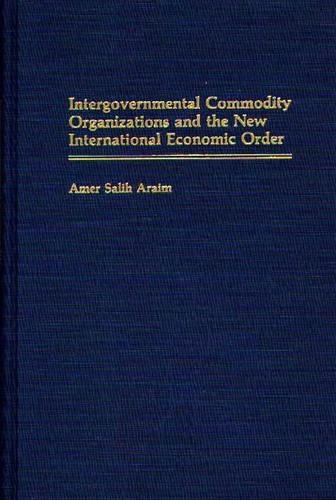
Intergovernmental Commodity Organizations and the New International Economic Order
(Hardback)
Publishing Details
Intergovernmental Commodity Organizations and the New International Economic Order
By (Author) Nibras M. Araim
Bloomsbury Publishing PLC
Praeger Publishers Inc
30th July 1991
United States
Classifications
Tertiary Education
Non Fiction
382.60601
Physical Properties
Hardback
256
Description
In a contribution to economic development literature, this book examines the role of intergovernmental commodity organizations in international commodity trade. The author focuses particularly on the effects of these organizations on the establishment of the new international economic order advocated by developing states in an attempt to regain a measure of economic control over the commodities they export. Based on extensive research and his 17-year association with the United Nations, Araim analyzes four major commodity organizations to determine their ability to regain control from transnational corporations, to repatriate profits from the development of a raw material base, and enforce an altered economic order that assists the world's developing nations. Following an introduction, the author explores the role of the UN General Assembly in promoting the new international economic order and the contributions of GATT and UNCTAD to the promotion of international trade in commodities. Turning to in-depth study of the commodity organizations themselves, Araim devotes a major portion of his book to OPEC because of its impact on the international oil market, its success in raising oil prices for the benefit of its members, and its ability to meet the challenges facing it in the 1980s and 1990s - an especially timely6 analysis in light of the recently ended Persian Gulf War. He then examines two other commodity exporting organizations that have had less success - the Intergovernmental Council of Copper Exporting Countries and the Internationl Bauxite Association - in an effort to determine the reasons for their failure to appreciably influence international markets or provide economic benefits to national members. Araim concludes with a look at a major producer and consumer organization, the International Coffee Organization, showing how it has been able to play an important role in the international coffee market, despite chronic differences among producers and between them and consumers.
Author Bio
AMER SALIH ARAIM is Senior Political Affairs Officer in the Department of Political and Security Council Affairs at the United Nations.
